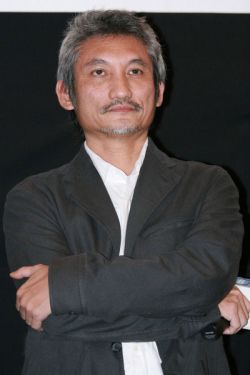Tsui Hark
Tsui Hark (Chinese: 徐克) is a prolific Hong Kong film director, noted for the philosophical movies “New Dragon Gate Inn” and “Green Snake”. Tsui greatly influenced Hong Kong’s Golden Age of filmmaking in the 1980s and 1990s, which saw local "New Wave" directors Ann Hui, Patrick Tam, Yim Ho and Allen Fong rise to prominence.
His latest 3-D action film "The Taking of Tiger Mountain" brought a total box office earning of 802 million yuan (US$129 million) during the two weeks after its debut, becoming the first $100-million film of 2015 in the country.
He won the Hong Kong Film Award for Best Director in 1991 with his martial arts action film “Once Upon a Time in China”, starring Jet Li as Chinese folk hero Wong Fei-hung. He was also nominated for the Golden Lion Award at the 2010 Venice Film Festival with the blockbuster "Detective Lee and the Mystery of the Phantom Flame”. His first 3D film “The Flying Swords of Dragon Gate", a sequel to "New Dragon Gate Inn", hit cinemas at the end of 2011, premiering almost alongside Zhang Yimou's "The Flowers of War."
In October, 2011, Tsui received the Asian Filmmaker of the Year Award at the 16th Busan International Film Festival, becoming the fifth Chinese filmmaker to receive the award.
Born in Saigon, Vietnam, 1950, to a large Chinese immigrant family, Tsui immigrated to Hong Kong with his parents and 16 siblings at the age of 13. He demonstrated his genius and enthusiasm for filmmaking at the tender age of 10 when he and his friends rented a video camera to shoot a magic show which they subsequently broadcast at school. At the age of 13, Tsui started his pilot filmmaking program with an 8 mm camera. He also drew cartoons and comic books which would later hugely influence his cinematic style.
Tsui received his filmmaking education at Southern Methodist University in Texas after finishing his secondary education in Hong Kong in 1966. He claim to have told his parents that he wanted to follow in his father’s footsteps as a pharmacist. However, he continued his film studies at the University of Texas at Austin and subsequently moved to New York City, where he worked on Christine Choy’s noted documentary, From Spikes to Spindles (1976).
Two years later, he returned to Hong Kong from New York City, where he established a community theater group and worked sporadically for a Chinese newspaper and a Chinese cable TV station.
His domestic filmmaking career began with his maiden independent movie “the Butterfly Murders”, a historical drama whose different elements set it apart from mainstream offerings. His adept cinematic skills were recognized thanks to his following films, “Zu Warriors from the Magic Mountain”, “A Better Tomorrow” and “A Chinese Ghost Story”.
In 1984, Tsui established a film studio with his wife Nansun Shi, hoping to produce high-quality movies which would be both critically and commercially successful. His efforts paid off during the following decade as films such as “New Dragon Gate Inn”, “Once Upon a Time in China” and “Shanghai Grand” captured the imagination of filmgoers.
In 1997, he made his American directorial debut with his movie “Double Team”, starring U.S. action film star Jean-Claude Van Damme. However, this initial foray into the international market was a critical and commercial failure, overwhelmed by negative reviews and disappointing box office receipts.
Despite a career which has alternated between failure and success, the veteran director’s enthusiasm for filmmaking remains undaunted. In 2000, his Hong Kong action film “Time and Tide” received many positive reviews from western critics. In the ensuing decade, he has integrated cutting-edge 3D animation with live action and the “Master Q 2001” was a shining example of this synergy.

